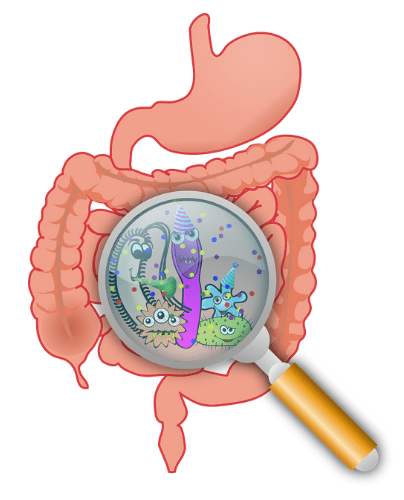
Struggling to fit into your old clothes? What about the chronic fatigue which no amount of coffee can help? You probably feel as though no one can relate to the constant brain fog and overwhelming mood swings you’ve been dealing with while having hypothyroidism.
Hypothyroidism affects approximately 10 million Americans, and most Americans are unaware they have this chronic disease. Having hypothyroidism means your thyroid gland is not producing enough thyroid hormones.
Your thyroid might be a small gland, but it plays a major role in producing hormones which affect every cell, tissue, and organ in your body. Your thyroid releases mostly thyroxine (T4) which is inactive in its form. Your thyroid does release a small amount of its active form triiodothyronine (T3). But T3 is mostly synthesized by the conversion of T4 to T3 in your liver, kidneys, gastrointestinal tract, brain, and heart.
Your thyroid gland hormones play a vital role in the following functions:
- Metabolism
- Central and peripheral nervous system
- Heart rate
- Digestion
- Reproductive health
- Body temperature
- Breathing
- Fertility
- Liver function
Your gut and your thyroid have a very close-knit relationship with each other. They have a two-way street in which they can easily affect the other’s function.
A Two-Way Street Between Gut Health and Thyroid Function
For 90% of Americans, hypothyroidism is caused by an autoimmune thyroid disease called Hashimoto’s. Since 70-80% of your immune system is found in your gut – it’s no wonder the main perpetrator for triggering Hashimoto’s could start in your gut.
Your gastrointestinal tract is no stranger to thyroid hormones. It contains multiple thyroid hormone receptors which is why having hypothyroidism can indirectly affect the proper functioning of your gut. This can ultimately lead to a decreased gastrointestinal motility which promotes small intestinal bacterial overgrowth (SIBO).
Hypothyroidism has been strongly linked to small intestinal bacterial overgrowth (SIBO). SIBO is when bacteria grows in places it shouldn’t – your small intestines. This can lead to uncomfortable gastrointestinal issues such as constipation, diarrhea, and gas.
On the other hand, poor gut health can also hinder thyroid function by triggering an autoimmune thyroid disease called Hashimoto’s disease.
Small intestinal bacterial overgrowth causes gut dysbiosis – an imbalance of good and bad gut bacteria – which can lead to problems such as:
- Malabsorption of nutrients
- Gut inflammation
- Leaky gut
- Autoimmune diseases
- Gastrointestinal issues (constipation, diarrhea, abdominal pain, and bloating)
Intestinal inflammation from SIBO can suppress the conversion of T4 to the active thyroid hormone T3. Low T3 in your body results in hypothyroidism symptoms. In addition to decreasing this important conversion, intestinal inflammation can cause malabsorption of critical nutrients such as iodine and selenium.
Iodine and selenium are absolutely necessary for thyroid hormone production. When you aren’t able to absorb these two minerals your thyroid hormone production decreases resulting in hypothyroidism.
How Hypothyroidism Causes SIBO
Your thyroid regulates the following metabolic processes in your gastrointestinal tract:
- Motility
- Digestion
- Peristalsis
- Gastric emptying
- Migrating motor complex
When your thyroid isn’t functioning at optimal capacity these processes start deteriorating, slowing motility, peristalsis and your migrating motor complex.
All of these functions are necessary for helping your gut to naturally get rid of unwanted bacteria.
When your gut becomes stagnant due to hypothyroidism this becomes a breeding ground for small intestinal bacterial overgrowth.
Hypothyroidism also inhibits the production of hydrochloric acid in your stomach. You need stomach acid to help break down and digest food. Stomach acid is also important in protecting against bacteria overgrowth in the gut.
Studies show this thyroid-gut connection is why over half of people with hypothyroidism test positive for SIBO and other gastrointestinal issues such as constipation.
SIBO: A Major Culprit in Triggering Hashimoto’s
Small intestinal bacterial overgrowth has been associated with increased intestinal permeability or “leaky gut”. Tight junctions in your gut lining regulate what goes in and what stays out of your bloodstream. When leaky gut occurs, these tight junctions become loose allowing things such as toxins, food particles, and bacteria to slip into your bloodstream.
When these particles especially things like gluten crossover into your bloodstream – where they don’t belong – they become foreign invaders. Your immune system tags them as foreign and immediately starts to attack. This activates an inflammatory cascade in your body to fight off these so-called “foreign invaders.”
Your immune system starts to produce antibodies which can eventually lead to an attack on your healthy tissues like your thyroid gland.
This trickle-down effect from SIBO to leaky gut has deleterious effects and has been strongly associated with autoimmune diseases including Hashimoto’s.
Other autoimmune diseases triggered by a leaky gut include:
- Inflammatory bowel disease
- Celiac disease
- Autoimmune hepatitis
- Type 1 diabetes
- Multiple sclerosis
- Systemic lupus erythematosus
SIBO and T4-T3 Conversion
The conversion of T4 to T3 is important because the body can only use the T3 active form. Most of this conversion takes place in your liver, but your gut microbes help convert about 20% of your T4 to T3.
This conversion can only take place when the bacteria and tissue in your gut are healthy. When gut dysbiosis occurs, your bad bacteria crowd your good bacteria. This can inhibit thyroid hormone synthesis and metabolism which can affect decrease serum levels of your thyroid hormone.
In the case of gut dysbiosis in small intestinal bacterial overgrowth – unwanted bacteria and inflammation in the tissues can potentially hinder the conversion of T4 to T3 leading to low T3.
Thyroid and SIBO Testing in the Dallas/Fort Worth Area
The SIBO and thyroid connection evidence is gaining more and more attention through research. Whether small intestinal bacterial overgrowth has led to your hypothyroidism or hypothyroidism has led to small intestinal bacterial overgrowth – it’s important to find the root cause.
You can see how the health of your thyroid and gut are both dependent on each other. If you suspect you have either of these conditions, it’s important to get tested for SIBO and thyroid function because one can easily lead to the other.
At the Dynamic Health Center, we’re focused on getting to the root cause of your disease, and we provide the resources to tackle your illness. If you’re in the Dallas/Fort Worth area request an appointment with Dr. Lyn Berutti or Melanie Martin, PA.

